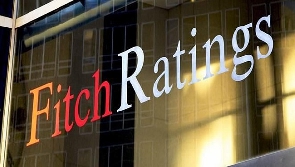Rising debts and the differing strength of public finances across eurozone countries make reforming European fiscal rules more challenging, ratings agency Fitch said in a report.
The European Commission began overhauling the so-called Stability and Growth Pact last February, before suspending the rules amid COVID-19.
But creating new rules flexible enough to acknowledge each country’s situation while remaining strong enough to ensure sound fiscal policies will be difficult, Fitch argued.
“Fiscal performance has been uneven across eurozone members, and the pandemic-related surge in debt amplifies the challenges to reform the fiscal rules and design a credible debt anchor,” said analyst Gergely Kiss, one of the report’s authors.
The rules were introduced at the inception of the eurozone, to promote responsible policies and coordination between member states.
They include a strict budget deficit target of less than 3% of GDP and a public debt target of less than 60% of GDP.
They were reinforced in 2012 and 2013 in the aftermath of the global financial crisis, but the debt target has remained unchanged since the Maastricht Treaty was signed in 1992.
Past poor performance on debt reduction shows the challenge the EU faces, Fitch said.
Countries with low initial debts overperformed when bringing debt down, but “sizeable underperformance” was rife among the most indebted countries in the bloc, according to the report.
While countries such as Germany and the Netherlands had budget surpluses in 2017-19, and many others were at their ‘medium-term objectives’, others such as France, Italy and Spain ran deficits exceeding 2% of GDP.
“In some countries, ‘consolidation fatigue’ appeared after successfully exiting from the excessive debt procedure,” the report said, referring to the formal process incurred by a country with deficits over the 3% rule.
“In these cases, the key fiscal policy objective was to bring the deficit below the 3% threshold to avoid the EDP but very little, if any, further fiscal efforts were made to get towards the MTO.”
Low interest rates had fueled the belief in some quarters that the parameters of ‘sustainable debt’ had shifted, but Fitch said the rules have been inadequate since their inception.
“The past two decades have shown that the current rules of the Stability and Growth Pact are too complex, lack transparency and could not ensure compliance in some instances,” the report said.
Any new proposals should ensure flexibility for democratically elected governments; be sufficiently counter-cyclical to encourage fiscal “buffers” to be built up in good times; and enforcement should be stronger, according to Fitch.
The agency warned failure to design a credible fiscal rule could add “downward pressure” on sovereign ratings when there are high levels of government debt.
Business News of Wednesday, 21 April 2021
Source: publicfinancefocus.org

















